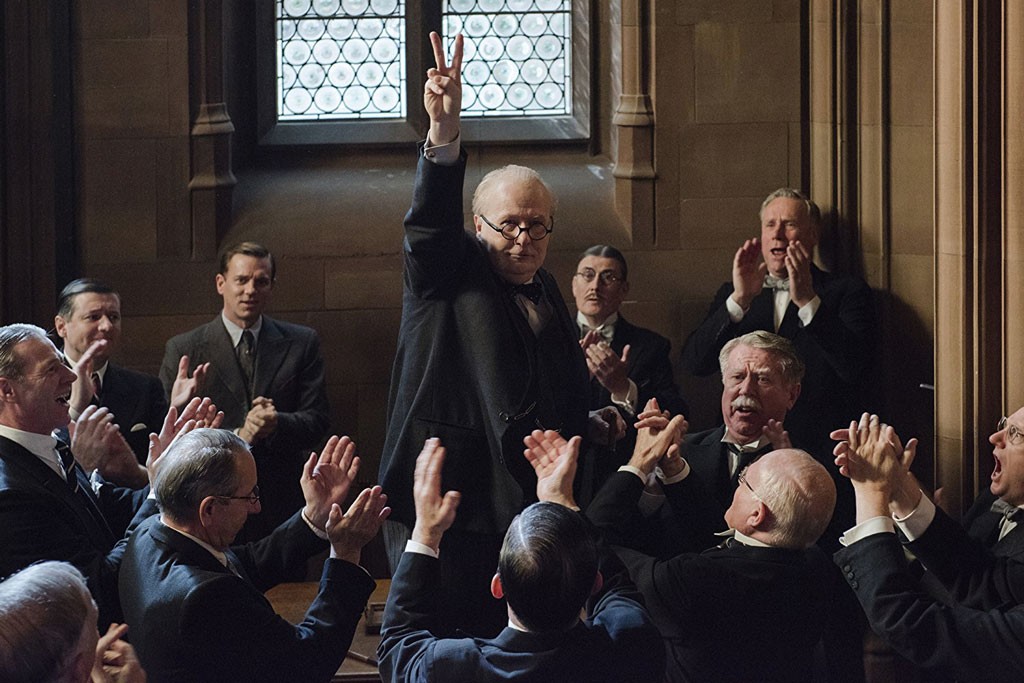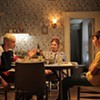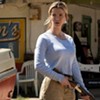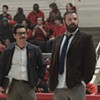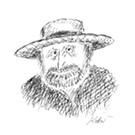As the sagacious cultural observer Seth Rogen noted of the cinema in Knocked Up, "Good things come in pairs: Volcano/Dante's Peak, Deep Impact/Armageddon." 2017 offered a rare critically acclaimed example of the phenomenon: Dunkirk/Darkest Hour. What are the odds of two films offering mirror images of the same chapter in British history in the same year — and both earning Best Picture Academy Award nominations?
Directed by Joe Wright (Atonement), Darkest Hour looks back on the period chronicled in Christopher Nolan's Dunkirk — May 1940 — through the opposite end of the telescope. Screenwriter Anthony McCarten tells not the story of troops trapped on the edge of France and waiting for a miracle, but the saga of officials in Parliament maneuvering to bring one about.
At the center of the modern age's most crucial moment, we find an aging, corpulent, alcoholic career politician equally distrusted by his own party and the crown. One who just happens to be a genius. And, to his surprise, the new prime minister.
Timing, as they say, is everything. They have a point. There is no paucity of works concerning Winston Churchill. In the past decade, he's made appearances in eight motion pictures, four plays, two books and nine television productions. All the same, watching Gary Oldman bring this marvelous man, this oratorical sorcerer, to life is a particular pleasure after a year of President Donald Trump's tweets.
The actor literally inhabits the part. Oldman projects an appealing mix of gravitas and mischief from within an edifice of quivering latex, padding and intricate prosthetics. But the illusion quickly takes a back seat to the drama of the narrative and the inventiveness of his performance, which has earned him the second Oscar nomination of his career.
Timing was everything in Churchill's rise, as well. The movie provides a powerful reminder that Adolf Hitler had devoured so much of Europe so rapidly that the PM considered it probable that it was too late to turn the tide. Especially with Franklin D. Roosevelt so helpfully sitting on his hands.
The film's most extraordinary scene comes early, laying out the precariousness of the situation. Advisers inform Churchill that western Europe could collapse at any moment. The shock of modern warfare is palpable. Hearing that Panzer tanks are crossing the continent with amazing speed, Churchill responds, "They'll have to pause for fuel supplies." "This is not the last war, sir," he's corrected. "Their tanks can stop for fuel at a petrol station."
What absolute fun it is to witness Churchill's intellect working out the problem, to watch as he schemed and "mobilize[d] the English language and sent it into battle," as Edward R. Murrow wrote. Despite the occasional Old Vic melodrama, Oldman lends it all an irresistible credibility.
He's assisted by a gifted cast that includes Kristin Scott Thomas as Churchill's wife, by Wright's propulsive direction and by Bruno Delbonnel's darting, dancing camerawork. Together, they make this feel like the fastest 125 minutes of the year.
The one stumble: a scene in which Churchill rides the Underground and polls its passengers. Which do they want — peace talks or war? To the last chimney sweep and urchin, they answer, "War."
This never happened and couldn't have. Reviews in the British press express stupefaction at the suggestion. In 1940, the public was terrified by the prospect.
It's but a blip. Overall, this is gripping stuff. "They don't make 'em like they used to" is something traditionally said about great movies. American audiences, however, are likely to leave Darkest Hour feeling the same way about great leaders.
